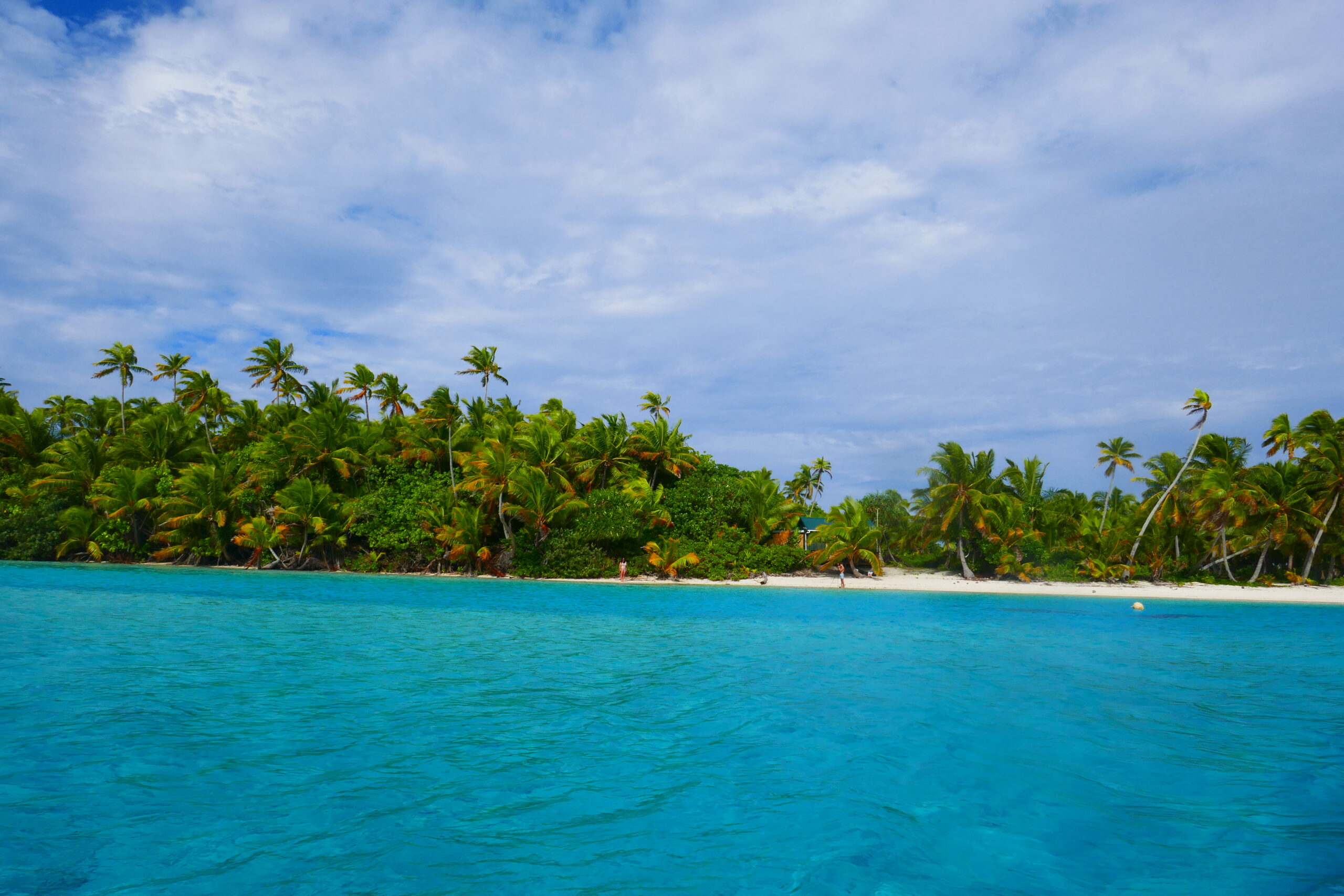Articles about the Cook Islands
General information:
Capital: Avarua
Language: English, Cook Island Māori
Religion: 63% Christian Protestant, 17% Catholic. Most of the protestant follow the Cook Island Christian Church.
Population: 15040 (2021)
English-friendly: Yes
Wi-fi reliability: You often have to pay to get Wi-fi, it may be cheaper to buy a SIM card at the arrival
Currency: New Zealand Dollar
Average cost per day: Around 400 NZD (2023) per day if you want to go to outer islands, a bit cheaper if you just want to visit Rarotonga. The budget includes return flights from New Zealand, accommodations, activities and scooter hiring.
How to get there: There are direct flights from New Zealand and French Polynesia to Rarotonga, the main island of the Cook Islands. For the outer islands, Aitutaki included, you can fly with the local flight company Air Rarotonga.
Visa: Not needed
Safety: Good
When to go:
Winter (May- October): It’s high season for the Cook Islands, because it’s warm and dry. Perfect for snorkelling, diving and kitesurfing. However, weather forecasts are often unreliable on the islands so always be prepared for a bit of rain.
Summer (November – April): It’s meant to be more rainy and there is higher chance of extreme natural events like cyclones. However, we know a lot of people that went there in summer and it was perfect. Also, a lot of locals return to their islands for Christmas. On Aitutaki on boxing day you should join the Koni Raoni.
Brief history of the Cook Islands
It is believed that the Cook Islands have been inhabited from around 900-1200AD and its first settlers were from Tahiti, the current French Polynesia. The first contact with Europeans occured in the 16th century and it was the Spanish sailor Álvaro de Mendaña de Neira, in 1595, the first to see one of the Cook Islands and called it “San Bernardo”. Although in 1606 the Portuguese were the first ones who landed on the islands, the country took the name of the British navigator James Cook, who arrived in 1773 and in 1777. Captain Cook initially named the islands “Hervey islands” but 50 years later the Russian Baltic german Admiral Johan Von Krusenstern renamed the islands in honour of the British navigator. No more Europeans arrived at the Cook Islands until some English missionaries in 1821. The influence of the first Christian missionaries was immediate and the islanders quickly converted to Christianity. Even today, religion has a very important role in the life of the majority of islanders. From mid 19th century to early 20th century, some islanders were kidnapped and force to work in plantations and industries around the world by European colonists, a practice called blackbirding. Between 1862 and 1863, hundreds of Cook Islanders were forcibly taken from their islands and sent across the ocean to Peru to work as plantation labourer and domestic servants. The country became a British protectorate in 1888 and then a colony of New Zealand in 1901. Since 1965 the country is officially a self-governing territory in free association with New Zealand.
The Cook Islanders
The indigenous people of the Cook Islands derive from a Polynesian ethnic group called Cook Island Māori. They are closely related to New Zealand Māori as many vaka (canoe) who first arrived in New Zealand came from the Cook Islands. The language is similar to New Zealand Māori but we were told that Cook Islanders understand better New Zealand Māori than vice versa. Every year, a large number of Cook Islanders emigrate, particularly to New Zealand, where most residents abroad reside. Traditionally each island of the Cook Islands was ruled by a number of ariki (high chiefs). Each ariki ruled a ivi or ngati (tribe). Beneath the ariki in the social hierarchy were the mataiapo and Rangatira (minor chiefs). The Cook Islands society is not patriarchal, both men and women could be ariki. These titles have been passed down through the family to the present and they are represented today in the House of Ariki, a parliamentary body of the Cook Islands which functions in a similar way to the house of Lord in the UK, although the country’s parliament is officially unicameral. In 2008 some members of the House of Ariki attempted a coup which was then eventually thwarted. Every Cook Island ivi owns a piece of land which is distributed among the whanau (enlarged family). As a owner of the ground, you are entitled to do whatever you want on your property and many Cook Islanders want to be buried in their garden. As a foreigner, you cannot buy a piece land but you can only take it on lease for up to 60 years. After that, you have to either renew the lease or return it to the owner. Today, traditional dresses and the flower crown called Ei Katu are still very popular among Cook Islanders.



